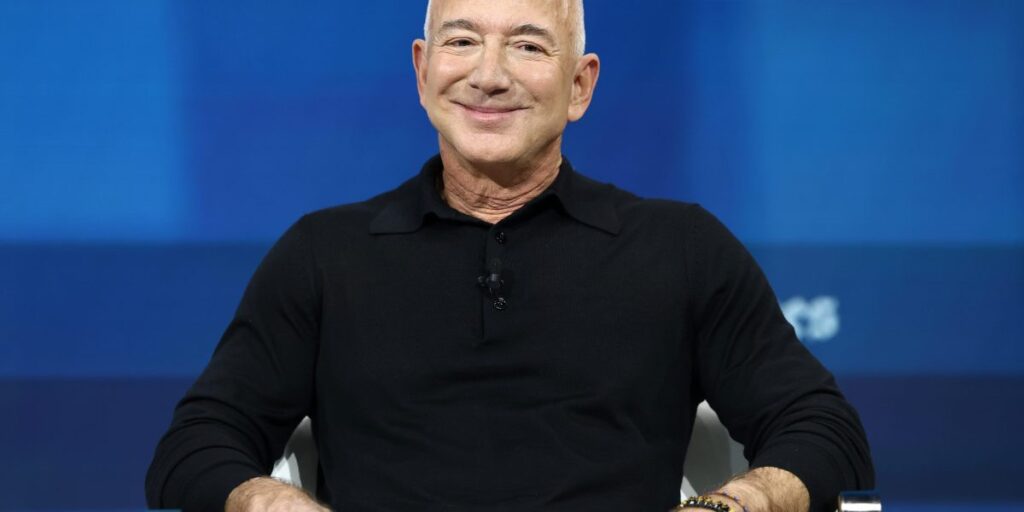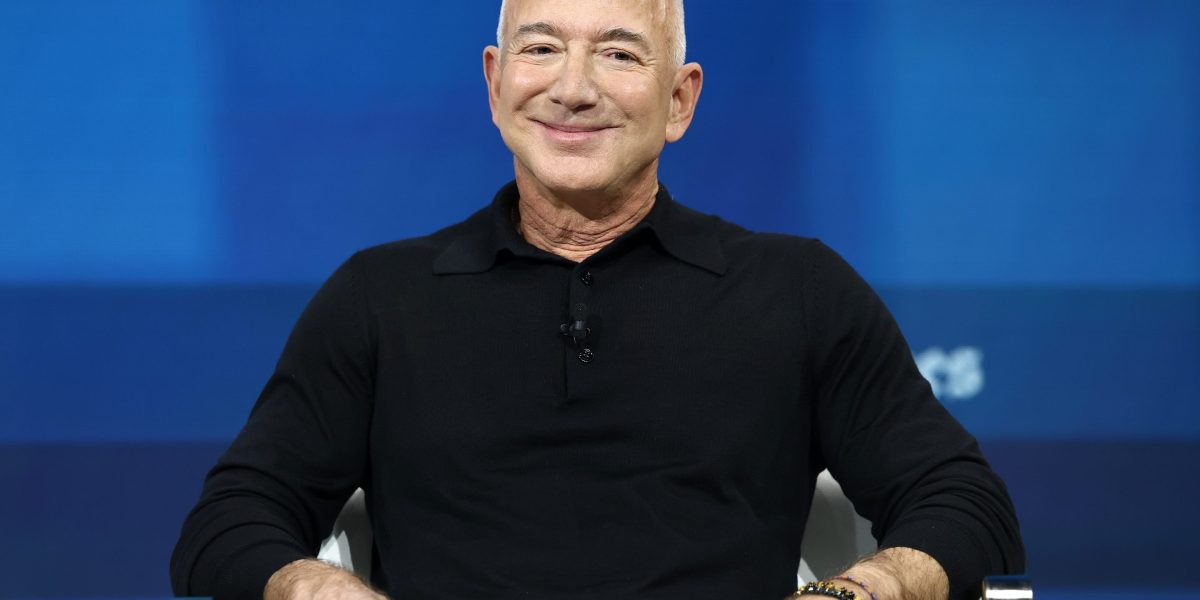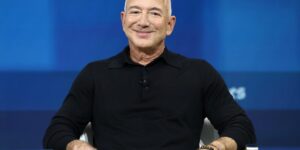Jeff Bezos warns Gen Z against dropping out of college to become the next Bill Gates or Mark Zuckerberg because they’re ‘the exception’—not the norm
The billionaire Amazon founder advises Gen Z to finish college and climb the corporate ladder—like he did. “I started Amazon when I was 30, not when I was 20,” Jeff Bezos warned.


More Gen Zers are opting out of college to become their own bosses. Some are even already becoming millionaires in the process. But don’t be fooled into thinking that’s a blueprint for success. That’s, at least, according to Amazon founder Jeff Bezos, who has just warned Gen Z that college dropout success stories are too good to be true for most people.
“It is possible to be 18, 19, 20 years old, drop out of college and be a great entrepreneur,” Bezos recently said on stage at Italian Tech Week 2025. “We have famous examples of that working, Bill Gates, Mark Zuckerberg, etc. But these people are the exception.”
Having graduated from Princeton University in 1986 with a degree in engineering, Bezos highlighted his own journey of climbing the corporate ladder at Wall Street before founding Amazon—and the billionaire thinks following the steady path actually increases your odds of landing entrepreneurial success later.
The key, he said, is using those years straight out of college to join “a best practices company, somewhere where you can learn a lot of basic fundamental things, how to hire really well, how to interview.”
In Bezos’ eyes, that experience won’t set you back. Instead, it’ll lay the groundwork for going at it alone: “There’s still lots of time to start a company after you have absorbed it and it increases your odds, in my opinion.”
“I started Amazon when I was 30, not when I was 20, and I think that that extra 10 years of experience actually improved the odds that Amazon would succeed,” he added. “So that would always be my advice, I finished college, and I think it’s been helpful to me.”
Actually, non-grad Gen Zers have the highest unemployment rate right now
Despite numerous reports warning that the higher education payoff is dead, and that thanks to more inclusive skills-based hiring, there’s no point getting a degree anymore, Goodwill’s CEO Steve Preston has witnessed the opposite.
The charity, which has over 650 job centers, saw over 2 million people use its employment services last year—and Preston says the majority of those who are currently struggling with unemployment are people without degrees.
“What I’m seeing is of the overall unemployment, people without college degrees have no jobs.” Research has shown that the issue is even more acute for Gen Z men.
The CEO, who formerly served as the 14th United States Secretary of Housing and Urban Development, revealed that he’s expecting an influx of unemployment as AI impacts those entry-level jobs. Already he says, “it’s much harder to find a job… It’s really hitting young adults without college degrees.”
And although employers say they’re being more inclusive, Preston insists hiring managers are going behind their bosses’ backs and going for pedigree hires. In reality, nearly half of director-level professionals still insist that a degree is an essential requirement, according to a new LinkedIn Workforce Confidence survey.
College degrees will become more—not less—relevant, in an AI era
Even in the age of AI, where OpenAI CEO Sam Altman says anyone can have PhD-level expertise in their pocket, experts argue that education is more important than ever.
“A student might prompt an AI to build a simple app, but without training in software architecture, debugging, and responsible data use, they risk creating something fragile or even harmful,” Dana Stephenson, CEO at Riipen, a platform that connects students with experiential learning through real work projects from industry partners, previously told Fortune.
Anant Agarwal, Chief Academic Officer at 2U, an educational technology company that contracts with nonprofit colleges and universities to develop online programs, echoed that degrees “future-proof your career by preparing you for the next big technology, whatever it might be.”
Although more than half of Gen Z grads say their degree was a “waste of money,” separate research shows that some subjects are still worth their weight in gold—with STEM degrees leading to six-figure salaries after college.
According to data from the Federal Reserve Bank of New York, aerospace engineering majors top the list of mid-career earnings, with a median annual income of $125,000. Plus, a separate study highlighted that advanced degrees, often in the medical field, are the key to unlocking jobs that pay over $200,000.






